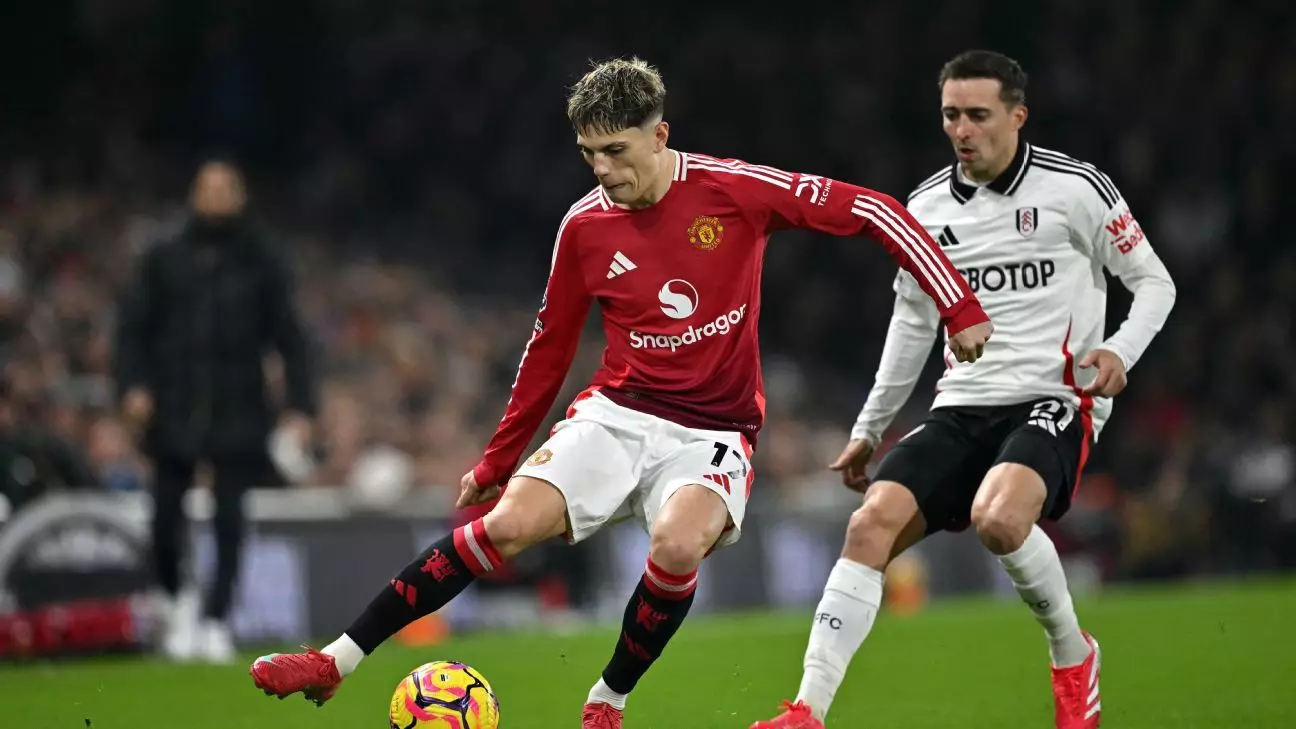In recent weeks, Alejandro Garnacho has garnered significant recognition for his remarkable resurgence within Manchester United’s lineup. Ruben Amorim, the manager, has commended Garnacho’s impressive performances, stating that the young winger has „changed everything“ to regain favor among the coaching staff and fans. This turnaround has been particularly notable against the backdrop of Garnacho’s exclusion from the squad during a pivotal match against Manchester City, which the team won 2-1. While his fellow academy graduate, Marcus Rashford, has experienced a prolonged absence from the team, Garnacho’s determination and performance have solidified his position in the squad, prompting critical praise from Amorim.
The juxtaposition between Garnacho and Rashford’s current trajectories is striking. Since their shared exclusion, Rashford has found himself on the outside looking in, missing eleven consecutive squads while attracting media attention for his struggles. In contrast, Garnacho has demonstrated resilience and adaptability, flourishing in his role after his return to the pitch. Amorim’s remarks reflect a coaching style that focuses on improvement and support, emphasizing that Garnacho’s ascent is purely his accomplishment. This stark difference in treatment illustrates the complexities of player management, showcasing how understanding a player’s needs can lead to success, whereas failing to connect can result in adversity.
Amorim attributed Garnacho’s improved performances to his newfound understanding of the coach’s demands and philosophy. According to the manager, Garnacho has evolved in multiple aspects of his game, particularly in how he prepares and recovers from training sessions. This transformation indicates that players need to adapt not only their skills but also their mindset to thrive under different coaching styles. Amorim’s insistence that Garnacho deserves all the credit for his progress reinforces the notion that self-motivation is key in professional sports.
The conversation surrounding Garnacho has been amplified by rumors linking him with potential moves to clubs like Napoli and Chelsea, as Manchester United navigates its own interests in maintaining profitability and sustainability. The club’s strategy appears to be evolving, especially as players like Kobbie Mainoo also demonstrate their potential on the field. Amorim’s enthusiasm for incorporating more academy players into the first team is not just strategic but also speaks to a broader philosophy that values homegrown talent. This investment in youth could be pivotal for the club’s future, as cultivating in-house players tends to yield sustainable benefits both financially and competitively.
Alejandro Garnacho’s journey from an uncertain future to a vital part of the Manchester United squad highlights the importance of adaptability and growth within professional sports. Ruben Amorim’s recognition of his transformation not only underscores the individual player’s development but also opens up greater discussions about the role of young talent in modern football. As United looks to balance its heritage with ambition, the club’s approach to nurturing and valuing academy players will likely determine its success in both the short and long term. Garnacho’s story serves as an encouraging reminder that with the right mindset and support, potential can flourish on the grandest stages of sport.


Napsat komentář